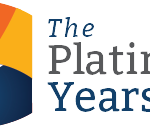How Change Often Requires Loss – Baby Boomers
 Maury Lederman had a choice: Leave his firm and retire, or leave his firm and move to another one. Kind of like Henry Ford saying, you can buy a car any color you like, as long as it’s black…
Maury Lederman had a choice: Leave his firm and retire, or leave his firm and move to another one. Kind of like Henry Ford saying, you can buy a car any color you like, as long as it’s black…
Like most, but not all baby boomers, Maury exhibits a lot of ‘gas in the tank’ at an age when some in our society expects him to retire, and had a contract mandating his retirement from a good sized regional firm. Some call this “getting retired”, but Maury had a plan and experience in making other career transitions. What follows is a synopsis of our interview:
Question: Despite having a mandatory retirement age in your contract, what motivated you to keep working albeit at a smaller firm?
Maury: I always thought I would practice law until I was at least age 70. When I was only a few years from that age, I had to leave my former firm, and I wasn’t ready to simply stop working because I enjoyed it. So I started looking for a new place to work. Fortunately, I found one near my home in the suburbs of Boston.
Question: Starting over can be hard for many people, what made you feel confident that you could make it work?
Maury: I have been practicing law for over 40 years. I started out as a public defender in Cleveland, OH. I then moved to Boston and worked at Greater Boston Legal Services. Later I moved to the Housing Authority for the city of Worcester, MA. In 1983, I switched to private practice representing construction industry-related clients.
Question: That is an interesting variety of legal specialties. What made the construction industry so appealing to you?
Maury: Since I was a little boy, I loved construction and I still especially like woodworking, It is just fun to build stuff.
Question: What do you miss about working at your former, larger firm:
Maury: I have always believed that change involves gains and losses. I miss the colleagues of course, and the support staff (administrators, PR, paralegal etc.). On the plus side, I love working close to my home and I don’t miss the commute into the city! Because I have lower expenses, I can also charge lower fees at a smaller firm, which pleases my clients.
Question: At this point in your career, what is your ideal mix of work, leisure and meaningful activities:
Maury: Working about 40 hours per week, and the rest spending time with my family, grand-kids, and my hobbies. My grand kids are young and local. They won’t always be, so I am glad to have the time to be with them, when they still want me around a lot.
Question: When you think about the word “retirement”, what does it mean to you?
Maury: Not being tied to work in order to support myself and my wife. It will require some thought on my part to keep me interested and interesting. I still get a lot of satisfaction from my work as a lawyer. Also more time to volunteer, but I guess I will need to think about what skills I can offer that others want from me.
Question: Are there two or three things you’ve always wanted to do, but haven’t done because you are working full-time?
Maury: There are a number of things I still want to do, but I’d say the top two might be to just see more of the world and to experience more of all the arts and culture that Boston and our region offer. I guess I will need to think more about that too.
Question: If you could make one or two changes to experience more of those “top two”, what would those be?
Maury: One, do more planning and put those things in my calendar. Two, expand myself beyond what I usually do, and not just working the “To-do list”.
Editor: Thank you Maury!
____________________________________________________________________________________________________________
posted by Paul Cronin – COO of Successful Transition Planning Institute in Boston, MA
____________________________________________________________________________________________________________
 If you have been thinking about “what’s next? for you in this next chapter of life, click here to download the free guide for Boomers, How Ready Are You? Assessment, or the image at left:
If you have been thinking about “what’s next? for you in this next chapter of life, click here to download the free guide for Boomers, How Ready Are You? Assessment, or the image at left:


